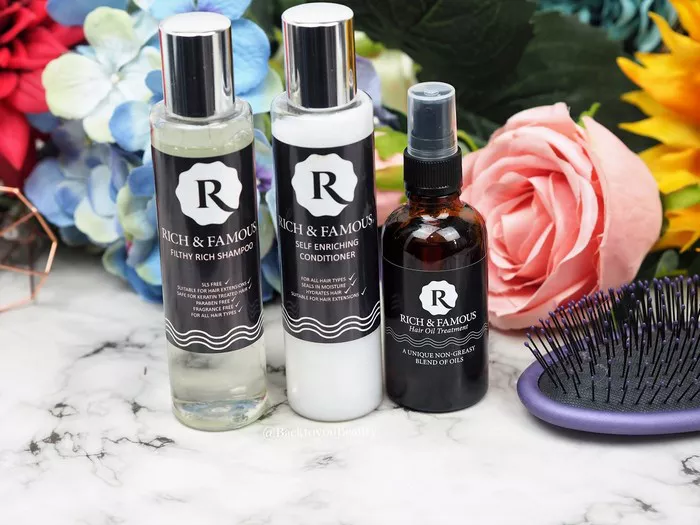Overview of Common Scalp Issues:
The scalp is prone to various issues that can lead to irritation, discomfort, and even embarrassment. Among the most prevalent are dandruff, psoriasis, and eczema. Dandruff, characterized by flaky skin and sometimes accompanied by itching, is often caused by excess oil production, fungal infections, or sensitivity to hair care products. Psoriasis is a chronic autoimmune condition that results in red, scaly patches on the scalp, while eczema causes inflammation, itchiness, and sometimes oozing or crusting of the skin. These conditions not only affect physical comfort but can also impact self-esteem and confidence.
Benefits of Oils for Scalp Health:
Using oils for scalp treatment offers a natural and effective way to alleviate irritation and promote overall scalp health. Oils are rich in nutrients, vitamins, and fatty acids that nourish the scalp and hair follicles, helping to restore balance and alleviate discomfort. Additionally, many oils possess therapeutic properties such as anti-inflammatory, antimicrobial, and antifungal effects, making them ideal for addressing the underlying causes of scalp issues.
List of Effective Oils for Irritated Scalp:
1. Tea Tree Oil: Renowned for its antimicrobial and anti-inflammatory properties, tea tree oil is a popular choice for treating various scalp conditions, including dandruff and fungal infections. It helps to soothe itching, reduce flakiness, and promote a healthier scalp environment.
2. Peppermint Oil: With its cooling sensation and antimicrobial properties, peppermint oil is effective in relieving scalp irritation and itchiness. It also helps to stimulate circulation, promoting hair growth and overall scalp health.
3. Ginger Oil: Ginger oil possesses anti-inflammatory and antioxidant properties, making it beneficial for soothing irritated scalp conditions such as psoriasis and eczema. It helps to reduce redness, swelling, and itching, while also improving scalp circulation.
4. Cade Oil: Derived from juniper wood, cade oil is known for its antifungal and antibacterial properties, making it effective against dandruff and other scalp infections. It helps to cleanse the scalp, reduce inflammation, and promote healing.
How to Apply Oils:
When applying oils to the scalp, it’s essential to use them properly to maximize their benefits. Here’s a simple guide:
1. Choose the Right Oil: Select an oil based on your specific scalp condition and needs. For example, tea tree oil is ideal for dandruff, while ginger oil may be more suitable for psoriasis or eczema.
2. Dilute if Necessary: Some essential oils can be potent and may need to be diluted with a carrier oil such as coconut or jojoba oil to avoid irritation.
3. Apply to Scalp: Using your fingertips or a dropper, gently massage the oil into your scalp, focusing on areas of irritation or dryness.
4. Massage Thoroughly: Massage the oil into your scalp using circular motions to stimulate circulation and ensure even distribution.
5. Leave in or Rinse Out: Depending on the oil and your preference, you can either leave it in overnight for intensive treatment or rinse it out after a few hours.
Product Recommendations:
1. Kiehl’s Scalp and Hair Oil Treatment: Enriched with essential oils such as peppermint and cedarwood, this treatment oil helps to soothe and nourish the scalp while promoting healthy hair growth.
2. OGX Extra Strength Refreshing Dry Scalp Treatment: Formulated with tea tree oil and peppermint extract, this scalp treatment provides instant relief from itching and irritation while leaving the scalp feeling refreshed and revitalized.
Precautions and Tips:
1. Perform a Patch Test: Before using any oil on your scalp, it’s essential to perform a patch test to check for any potential allergic reactions. Apply a small amount of the oil to a small area of skin and wait 24 hours to ensure there are no adverse effects.
2. Use Sparingly: While oils can be beneficial for the scalp, using too much can lead to greasiness or weigh down the hair. Start with a small amount and adjust as needed.
3. Practice Good Scalp Hygiene: In addition to using oils, maintaining good scalp hygiene is essential for preventing and managing scalp issues. This includes washing your hair regularly with a gentle shampoo, avoiding harsh chemicals or styling products, and protecting your scalp from harsh weather conditions.
FAQs
Q: Can I mix different oils together for scalp treatment?
A: Yes, you can mix different oils together to create a customized treatment blend. Just be sure to choose oils that complement each other and dilute them properly if necessary.
Q: How often should I apply oil to my scalp?
A: The frequency of oil application depends on your scalp condition and personal preference. Some people may benefit from daily use, while others may only need to apply oil once or twice a week.
Q: Can oils help with hair growth?
A: While oils can nourish the scalp and promote a healthier environment for hair growth, they are not a guaranteed solution for hair loss. However, regular scalp massages with oil can help stimulate circulation and may contribute to improved hair growth over time.
In conclusion, incorporating oils into your scalp care routine can provide numerous benefits, from soothing irritation to promoting overall scalp health. By choosing the right oils, applying them properly, and practicing good scalp hygiene, you can effectively manage common scalp issues and enjoy healthier, happier hair.


